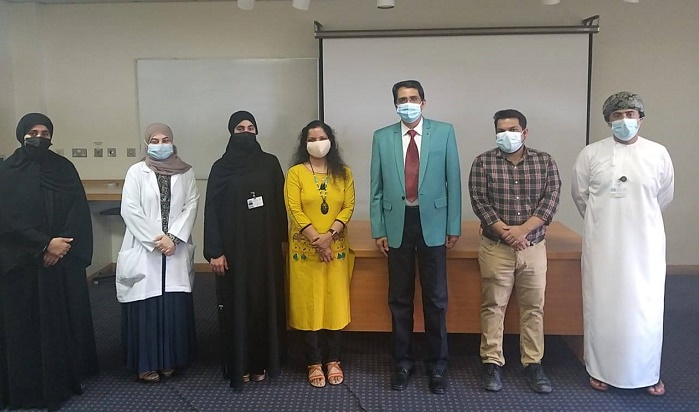
Muscat: Telemedicine practices and an AI-driven symptom checkers were some of the tools used by primary healthcare centres in Oman to provide better care to COVID patients in the country.
These ideas were developed by Dr PC Sherimon from the Arab Open University, whose team put forth these ideas in the form of a clinical decision support system (CDSS) which was sent to Royal Oman Police (ROP) health centres, and clinics in far-flung areas in the country.
Sherimon’s efforts were among those funded by the COVID-19 Research Programme of the Ministry of Higher Education, Research and Innovation, which has encouraged people in the country to come up with ways to better tackle the disease. Many of these plans can also be used to tackle future hurdles Oman might face.
The CDSS encouraged the use of telemedicine to help patients who did not have easy access to health centres, or were unable to get there. Their symptom checker was based on WebRTC – a Google-run software used in the medical field – and integrated into the CDSS. After testing their systems using sample data, it was found that the symptom checker provides results similar to those given by actual doctors.
The artificial intelligence used in this CDSS aims to diagnose patients to see if their symptoms match those associated with the coronavirus.
It also considers and evaluates existing/underlying medical conditions and complications present in patients, on the basis of which it provides the necessary recommendations for care, and the appropriate medical prescriptions.
Further follow-up and guidance can also be provided through these telemedicine services. The symptom checker can be used by any person in the country from the comfort and safety of their homes. These services also enable doctors to examine patients based on the symptoms recorded, and prescribe further tests and medications where required.
A system that can be best used in hard-to-access areas of the country, such as its interior, the main findings of this CDSS showed that it can be used to help people who visit healthcare centres, and provide health-based assistance in other public places as well, said Dr Sherimon.
This also helps minimise contact between healthcare workers and infected people, with this AI-based detection system finding great value as a support tool in healthcare centres. A teleconferencing utility present within the service also helps doctors consult with other practitioners from around the world.